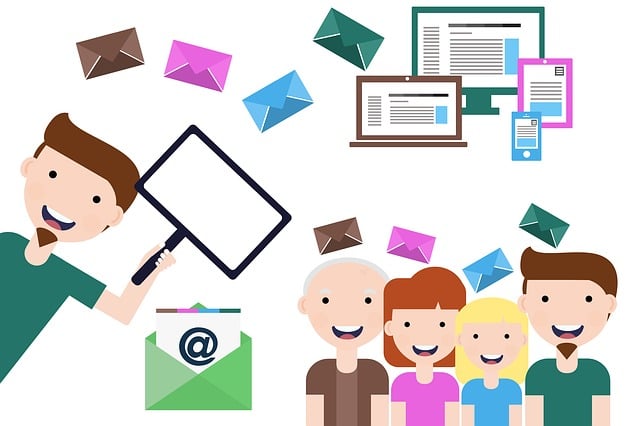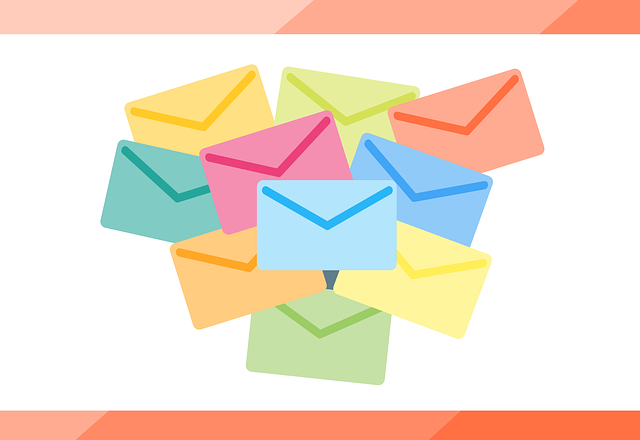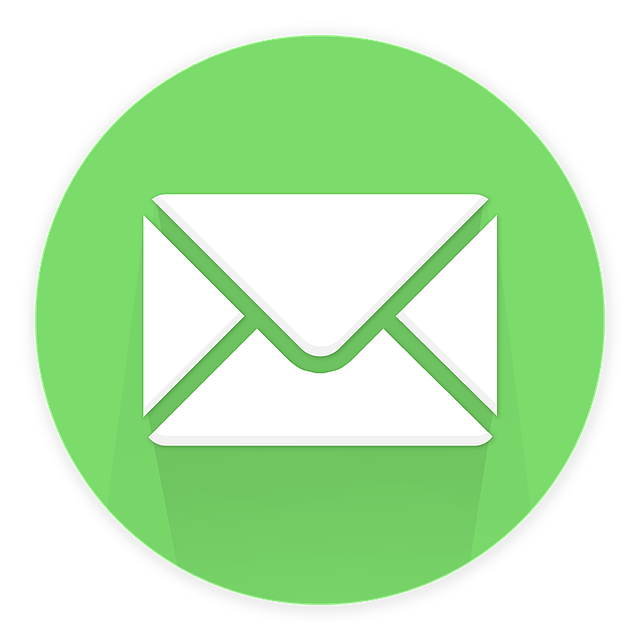Imagine you’re a SaaS company trying to reach your target audience and increase your customer base. You’re faced with a dilemma: should you invest your marketing efforts in email marketing or SMS marketing? It’s a tough decision, but one that can have a significant impact on the success of your business.
According to recent data, email marketing has been a tried and true method for SaaS companies to engage with their audience. With an average open rate of 20%, email marketing allows you to deliver personalized messages and valuable content directly to your subscribers’ inboxes. It’s a cost-effective and efficient way to nurture leads and drive conversions.
On the other hand, SMS marketing has gained popularity in recent years due to its high open rate of 98%. With text messages being opened within minutes of delivery, it’s a powerful tool to deliver time-sensitive information and engage with your audience in real-time.
So, which approach should you choose? In this article, we’ll explore the benefits and limitations of both email marketing and SMS marketing for SaaS companies. Armed with this knowledge, you’ll be able to make an informed decision on which strategy will work best for your business.
Key Takeaways
- Email marketing allows for personalized messages and valuable content, with a higher level of segmentation and targeting based on preferences and behavior.
- SMS marketing has a significantly higher open rate of 98% and is effective in delivering time-sensitive information in real-time.
- SaaS companies should consider message length, opt-out and unsubscribe options, compliance with regulations, and data privacy when choosing between email and SMS marketing.
- Analyzing data and testing strategies is crucial in determining the most effective approach for a SaaS company, taking into account factors such as target audience, personalization needs, and compliance requirements.
Understand Your Target Audience
Understanding your target audience is crucial for effectively implementing email marketing or SMS marketing strategies for your SaaS company. By understanding demographics such as age, gender, location, and interests, you can tailor your marketing messages to resonate with your audience. This allows you to create personalized content that speaks directly to their needs and pain points, increasing the chances of engagement and conversion.
With email marketing, you can segment your audience and send targeted emails based on their preferences and behavior, ensuring that your message reaches the right people at the right time. This level of personalization can lead to higher open rates, click-through rates, and ultimately, more conversions.
Transitioning into the subsequent section about the benefits of email marketing for SaaS companies, let’s explore how this strategy can help you grow your business.
Benefits of Email Marketing for SaaS Companies
One major advantage of utilizing email campaigns for SaaS companies is the ability to reach a vast audience and engage with potential customers on a more personal level. Email marketing allows you to connect with your target audience directly in their inbox, increasing customer engagement and building brand loyalty. Additionally, email campaigns provide an opportunity to deliver tailored content and offers based on customer preferences and behavior, which can significantly improve conversion rates.
To illustrate the effectiveness of email marketing, consider the following table:
| Benefit | Email Marketing | SMS Marketing |
|---|---|---|
| Reach | Broad audience reach | Limited reach |
| Personalization | Highly customizable | Limited personalization |
| Engagement | Higher customer engagement | Lower customer engagement |
As you can see, email marketing offers numerous benefits, including the ability to reach a broader audience and engage customers on a more personal level. However, it’s important to note the limitations of email marketing for SaaS companies, which will be discussed in the next section.
Limitations of Email Marketing for SaaS Companies
Despite its advantages, email marketing for SaaS companies has its fair share of limitations. One major limitation is email deliverability. Even with a well-crafted email, there’s always a chance it may end up in the spam folder or get blocked by strict filters. This reduces the reach and effectiveness of the marketing campaign.
Additionally, reaching potential customers who have unsubscribed poses another challenge. Once they opt-out, there’s no way to directly communicate with them through email. This can significantly impact customer engagement and hinder the growth of the SaaS company.
However, there’s an alternative solution that overcomes these limitations. By transitioning to SMS marketing, SaaS companies can tap into a more direct and immediate channel for reaching customers, which will be discussed in the subsequent section.
Benefits of SMS Marketing for SaaS Companies
If you want to maximize your reach and engage with customers on a more direct and immediate level, SMS marketing is the solution for your SaaS company. With SMS marketing, you can personalize your messages and target specific customer segments, leading to higher engagement rates and increased conversions. According to a study conducted by Mobile Xco, SMS messages have an open rate of 98%, compared to 20% for emails. This means that your messages are more likely to be seen and read by your audience. Additionally, SMS marketing allows for real-time communication, enabling you to send timely notifications, updates, and promotions directly to your customers’ mobile devices. By leveraging the personalization benefits and customer engagement of SMS marketing, you can effectively drive customer loyalty and accelerate your business growth. However, it’s important to consider the limitations of SMS marketing for SaaS companies.
Limitations of SMS Marketing for SaaS Companies
When it comes to SMS marketing for SaaS companies, there are a few limitations to consider.
Firstly, character limitations and message restrictions can make it challenging to convey your message effectively.
Secondly, there is a potential for opt-outs and unsubscribes, which can impact the reach and effectiveness of your campaigns.
Lastly, compliance with regulations and privacy concerns are crucial to address in order to maintain trust and avoid legal issues.
Character limitations and message restrictions
While you may be tempted to write lengthy emails or text messages, it’s important to remember that brevity is the soul of wit when it comes to character limitations and message restrictions. Keeping your messages short and concise is crucial for capturing the attention of your audience and driving engagement rates.
Here are three reasons why message length matters:
-
Higher Open Rates: Short and to-the-point messages are more likely to be opened and read by recipients, leading to higher engagement rates.
-
Improved Readability: Long messages can be overwhelming and may cause recipients to lose interest. By keeping your messages short, you ensure that they are easily readable and digestible.
-
Mobile Optimization: With the increasing use of smartphones, it’s important to consider the mobile experience. Shorter messages are more compatible with mobile screens and are more likely to be read.
By understanding the importance of message length, you can effectively optimize your SMS marketing strategy. However, it’s also important to consider the potential for opt-out and unsubscribes.
Potential for opt-out and unsubscribes
The potential for opt-out and unsubscribes should be carefully considered when implementing a concise and engaging messaging strategy.
While email marketing allows for higher engagement with customers, it’s important to respect their preferences and provide easy options for them to unsubscribe if they no longer wish to receive communication. This helps to maintain a positive relationship with customers and avoids any potential backlash or negative reviews.
On the other hand, SMS marketing, with its limited character count, can be more challenging to craft compelling messages while still providing an opt-out option. However, it’s crucial to prioritize customer preferences and make it simple for them to unsubscribe from SMS communications if desired.
Moving forward, it’s crucial to address compliance with regulations and privacy concerns in order to build trust and credibility with customers.
Compliance with regulations and privacy concerns
To ensure compliance with regulations and protect your customers’ privacy, it is essential to prioritize data security and follow industry best practices. Regulatory compliance is crucial for SaaS companies, as failure to adhere to applicable laws can result in hefty fines and damage to your reputation. Additionally, data privacy is a major concern for customers, who expect their personal information to be handled with care. By implementing robust security measures, such as encryption and access controls, you can protect sensitive data from unauthorized access. It is also important to obtain explicit consent from customers before collecting and using their data, and to provide them with clear opt-out options. By demonstrating your commitment to regulatory compliance and data privacy, you build trust with your customers and strengthen your brand. Moving forward, let’s explore choosing the right approach for your SaaS company.
| Regulation | Description |
|---|---|
| GDPR | Protects the privacy and personal data of EU citizens |
| CCPA | Gives California residents control over their personal information |
| CAN-SPAM | Regulates commercial emails and gives recipients the right to opt-out |
| TCPA | Restricts unsolicited SMS marketing messages |
| CASL | Requires consent for electronic messages sent in Canada |
Now, let’s discuss how to choose the right approach for your SaaS company.
Choosing the Right Approach for Your SaaS Company
When it comes to your SaaS company, it’s essential to choose the right approach that will effectively engage your audience and drive conversions.
To make this decision, you need to consider targeting strategies and conversion rates. Email marketing allows you to segment your audience based on their interests and behavior, delivering personalized content that resonates with them. This targeted approach can lead to higher conversion rates as it appeals to the specific needs and pain points of your customers.
On the other hand, SMS marketing offers a more immediate and direct communication channel. With high open rates and quick response times, it can be highly effective in engaging your audience and driving conversions.
Ultimately, the right approach for your SaaS company will depend on your target audience, their preferences, and the goals you want to achieve. Analyzing data and testing different strategies will help you determine the most effective approach for your business.
Frequently Asked Questions
How can SaaS companies effectively identify their target audience for email marketing campaigns?
To effectively identify your target audience for email marketing campaigns, employ targeting strategies and segmentation techniques.
Start by analyzing your existing customer data to understand their demographics, preferences, and behaviors. Use this information to create buyer personas that represent your ideal customers.
Segment your email list based on these personas, allowing you to tailor your messages and offers to specific groups.
Regularly analyze campaign metrics to refine your targeting and segmentation approach, ensuring you reach the right audience with the right message.
Are there any specific strategies or techniques that SaaS companies can employ to maximize the benefits of email marketing?
To maximize the benefits of email marketing, saas companies can implement effective strategies and techniques.
Email marketing segmentation allows you to categorize your audience based on their preferences, demographics, or behavior, ensuring personalized and relevant content.
By employing personalization techniques, such as dynamic content and personalized subject lines, you can create a more engaging and tailored experience for your subscribers.
These data-driven approaches not only increase open and click-through rates but also foster stronger customer relationships and drive conversions.
Are there any legal requirements or regulations that SaaS companies need to consider when using email marketing?
When it comes to email marketing, SaaS companies must be aware of legal considerations and spam regulations.
There are specific laws such as the CAN-SPAM Act in the US that require businesses to include opt-out options and accurate sender information in their emails.
Additionally, SaaS companies need to ensure they’ve obtained proper consent from recipients before sending marketing emails.
Violating these regulations can lead to legal consequences and damage to brand reputation.
It’s crucial for SaaS companies to stay compliant and prioritize ethical email marketing practices.
Can email marketing be used to effectively nurture leads and convert them into paying customers for SaaS companies?
To effectively nurture leads and convert them into paying customers for SaaS companies, email marketing proves to be a powerful tool. By strategically crafting personalized emails, you can guide leads through the customer journey, addressing their pain points and showcasing the value of your product or service.
Studies show that email campaigns focused on lead nurturing can result in a 20% increase in sales opportunities. The conversion rates are even higher when emails are customized based on customer behavior and preferences.
Are there any best practices or tips for SaaS companies to improve the deliverability and open rates of their email marketing campaigns?
To improve email deliverability and increase open rates for your SaaS company’s email marketing campaigns, follow these best practices:
1) Use a reputable email service provider to ensure emails reach the inbox.
2) Build a clean and engaged email list by regularly removing inactive subscribers.
3) Personalize your emails to make them relevant and engaging.
4) Optimize email subject lines and preview text to increase open rates.
5) Test and analyze different email elements to identify what resonates with your audience.
Conclusion
In conclusion, after analyzing the benefits and limitations of both email marketing and SMS marketing for SaaS companies, it is clear that both approaches have their strengths and weaknesses.
While email marketing allows for more detailed content and personalization, SMS marketing offers immediate and direct communication.
Ultimately, the right approach for your SaaS company will depend on your target audience and their preferences. So, don’t hesitate to experiment and find the perfect balance between these two powerful marketing tactics.
Remember, the sky’s the limit when it comes to engaging your audience and driving conversions.










